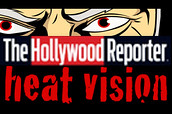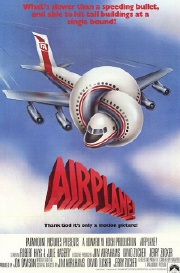
First off I'd probably have to say the reviewer I seem to see eye to eye on regarding Christopher Nolan's highly anticipated movie, "Inception" is David Edelstein of New York Magazine. Before seeing the movie I scoffed at the fact that he was
the only top critic to give the flick a less than stellar review. But after seeing it last night I actually agree with him.
As always, if you've not seen the movie yet, be aware that there are SPOILERS AHEAD!
Let me just say right off the top that I was REALLY looking forward to this movie, and for a number of reasons. I'm a HUGE Christopher Nolan fan, and have been right from the very start of his career with "Memento". Plus, the concept looked and sounded truly amazing and wonderfully intricate, as well as visually stunning. One of the positive things I will say about the film is that the visuals ARE truly incredible, especially a free fall fight in a hotel hallway. However the complexity and layering of the story were not what threw me from fully grasping what was going on. It was mostly some of the muddled and accent altering dialogue spoken in mumbles, too quickly, or with the attitude that you know how this whole dream entering trick works.
The movie does allow about fifty minutes for the audience to digest the mechanics of joining someone's dream state, a process Nolan appreciates and plays out very well here and in all of his previous films. "Memento" was certainly a prime example of this. Also, remember how interesting it was to see how Batman's costume came together from discontinued military programs, weapons and vehicles, as well as putting together two completely different products from two completely different manufacturers in two different countries to create the cowl. The only thing that really needed more of a mechanical explanation in "Inception" is how everyone seems to know about this machine that can place you in someone's subconscious in some way, shape, or form. Is it a stolen government experiment? Where did this technology come from? Does anyone with money and power command these dream teams and are they well known among the general populus? Important and, I think, essential story elements that are just brushed aside for you to swallow as though your mind will probably fill in the blanks.
That was part of the problem for me going into the end of the first act. Wait...what?...can we go back a bit? How come she knows about this? How come the mark seems to know about this dream process enough to have his subconscience 'militarized' against invading dreamers? Why are we fighting a bunch of James Bond bad guys in white snow suits against a hillside fortress? Oh wait, I know, let's listen to the dialogue for clues...
Leonardo DiCaprio: We've got to get here before they do.
Ellen Page: Right, but can we [mumble mumble] to [some name]'s position?
Ken Wattanabe: Look...we'll be able to [words spoken too quickly with Japanese accent] from a far.
WHAT?! HUH?! WHAT?!!!
Why are we here? What are we doing? Oh Christ, I don't know! Let's hope something happens shortly that makes sense...Oh wow! Check out that amazing dreamlike stunt and visual effect. COOL!!! O.K. we'll just coast for now, I guess...
After this happened several times along the way, you started to become numb and didn't really care about who was doing what. Just waiting for the resolution that would hopefully straighten everything out in the end. I 'got' that the team was performing an "Ocean's 11"-style con on the mark (Cillian Murphy), and that they would need to fool him by submerging into three dream levels; falling into one dream, going to sleep and having another dream in that dream, then falling alseep and having another dream in that dream within a dream. I absolutely understood all of that, and I could see the walls between these levels. One thing I might have added was at least some type of transition to let people know we were moving from one dream to another.
Which brings me to the fact that you really do have to pay attention throughout this movie, as critics are saying. I had no problem with that at all. But once again, the lack of information through missing dialogue and a three quarters explanation of how and where we find ourselves amongst the dream team who are about to perform this dangerous mission, pulled me away from becoming close enough to the story to really be immersed. I experienced the arms-up-in-the-air reaction at least twice (my WTF response to something in a movie that just isn't clicking at all), and you know right there that this is a bad sign when only half the movie has passed.
Leonardo DiCaprio is excellent in the role of a man whose tortured past continues to invade his current dream job, bringing out a number of facinating takes on how immersed a one could become in one's own dreams. His dead wife, played by Marion Cotillard, and faceless children continually haunt him visually and even try to sabotage the mark he's trying to manipulate. But I would have to say that almost everyone else is somewhat disposable.
Ellen Page has always been a favorite of mine since "Juno", but a few things that are set up for her are never really explored fully or paid off. The talent her character possesses as 'the architect' of dream structures is only played out during a training dream before any of the action begins, and this is the amazing sequence that's been played up in trailers of Paris folding in on itself. It would have been better for her to construct these structures and obstacles quite clearly as the dreams unfolded. Yes, you see her creating models before the mission of some of the landscapes they'll be encountering. But later on you start to wonder what her purpose is if we're not seeing her create on the run.
Joseph Gordon-Levitt's character is much more involved in physically performing the tasks at hand, and he received the strongest appreciative reaction from the audience as he fights two bad guys in that incredible free fall and tumbling hotel hallway struggle. Tom Hardy works well as 'the forger' who can mimic an individual from someone's life within the dream, here extracting information through trust and familiarity. The manner in which we see his character transform is visually subtle and clever. Cillian Murphy is the mark, but you never seem to connect with him emotionally. He's little more than a target, which is too bad because he's usually very interesting to take in on film. I point to his role as Dr. Jonathan Crane in "Batman Begins". BTW, watch for a brief appearance by a grown-up Lukas Haas in the opening scene.
Another unique aspect of dream states we all experience is how time bends a bit, where a couple of hours of dream time can equal five minutes of sleep time. These time lengths extend as we enter each next level of the dream state these characters are trying to fathom. There are definitely a couple of mind opening reveals regarding this as the movie rolls into it's final act, and the ending is very cleverly ambiguous. The only probem is do we care at this point?
Hans Zimmer's score is indeed epic, and Christopher Nolan continues his excellent collaboration with cinematographer Wally Pfister whose lensed every film for the director including "Memento", "Insomnia", "Batman Begins", "The Prestige", and "The Dark Knight". His top form visual talents are on display once again in "Inception".
But the bottom line is...should I give the movie another go to try and work my way through the muffled dialogue and busy storyline and hopefully appreciate the story's impact a bit more? Quite possibly. Not sure what I'll find, but I'm certainly willing to give this one more shot. Especially since everyone and his brother seems to think "Inception" is practically the second coming of Christ. Or if nothing else, as a few critics are putting it, an iconic film on the level of "2001: A Space Odyssey". I really don't think I'm going to come away from screening number two with that revelation, but if I could understand some of the things that bogged down my further enjoyment of this movie, I wouldn't mind that happening.
We'll see.














































